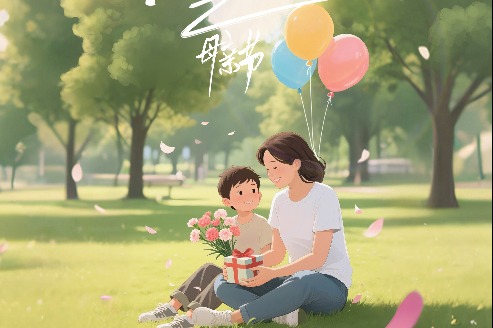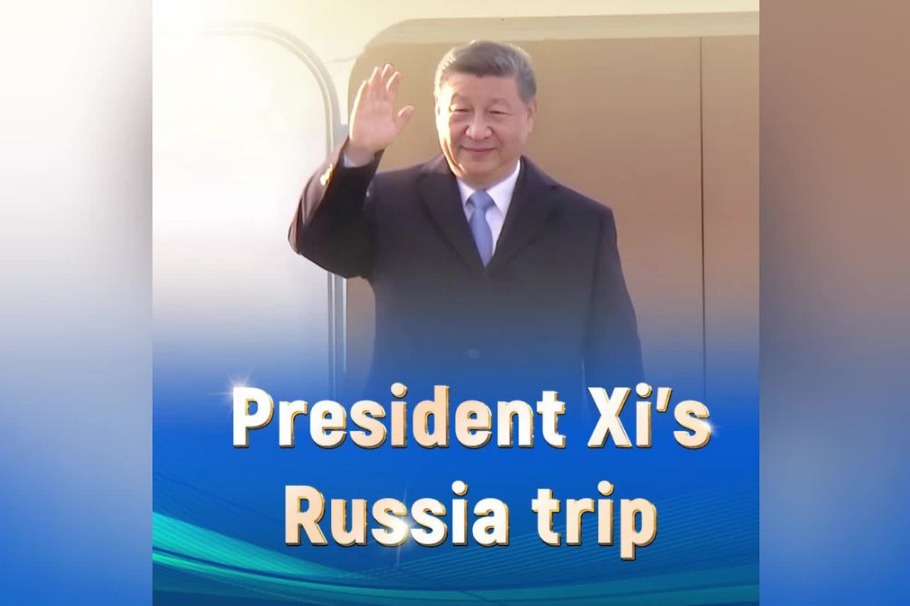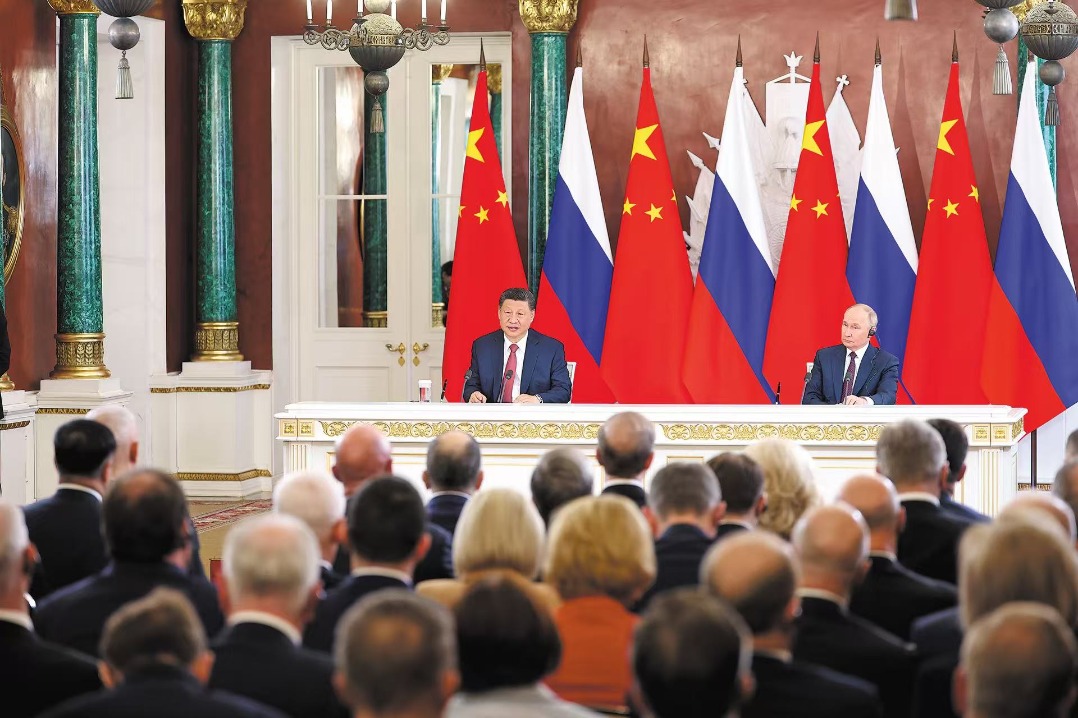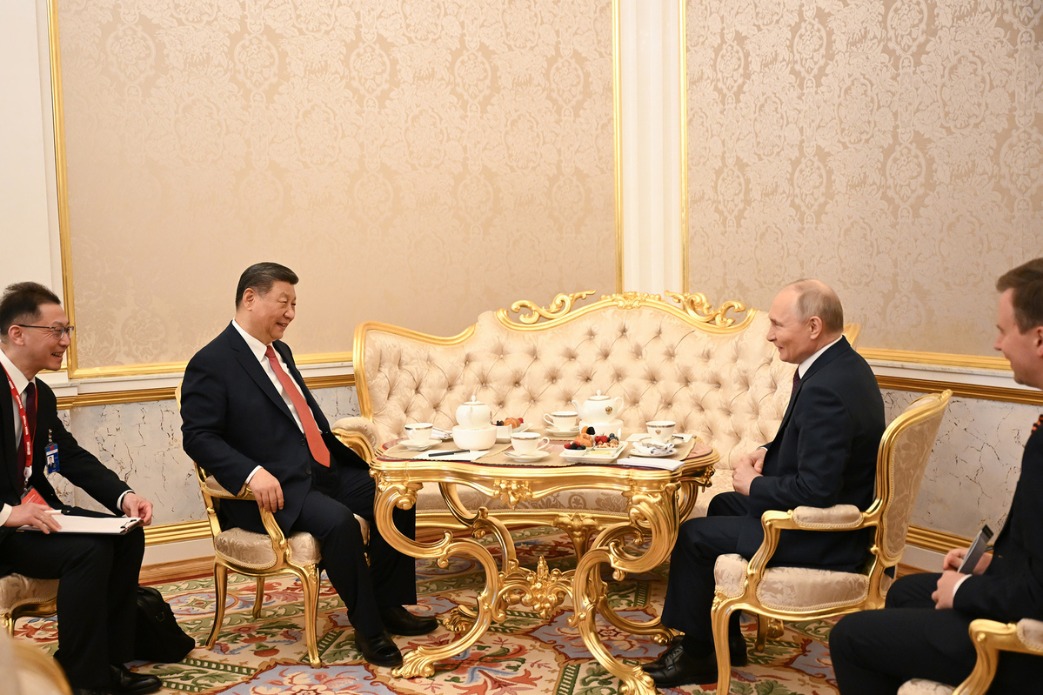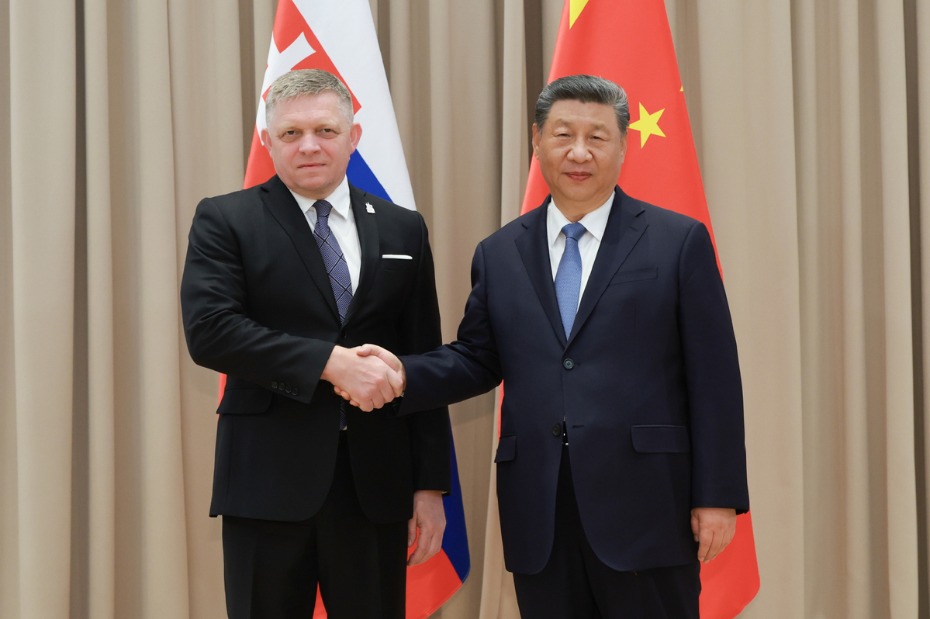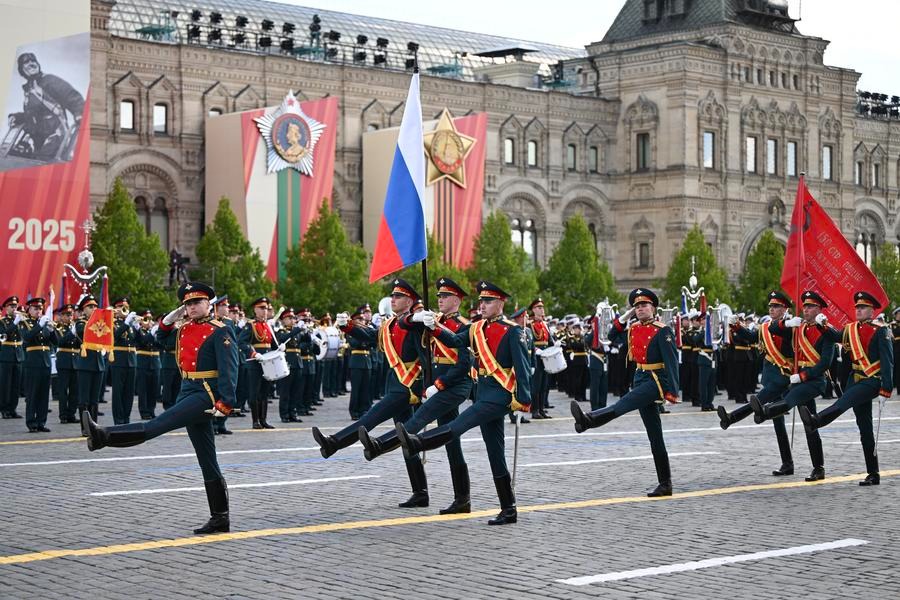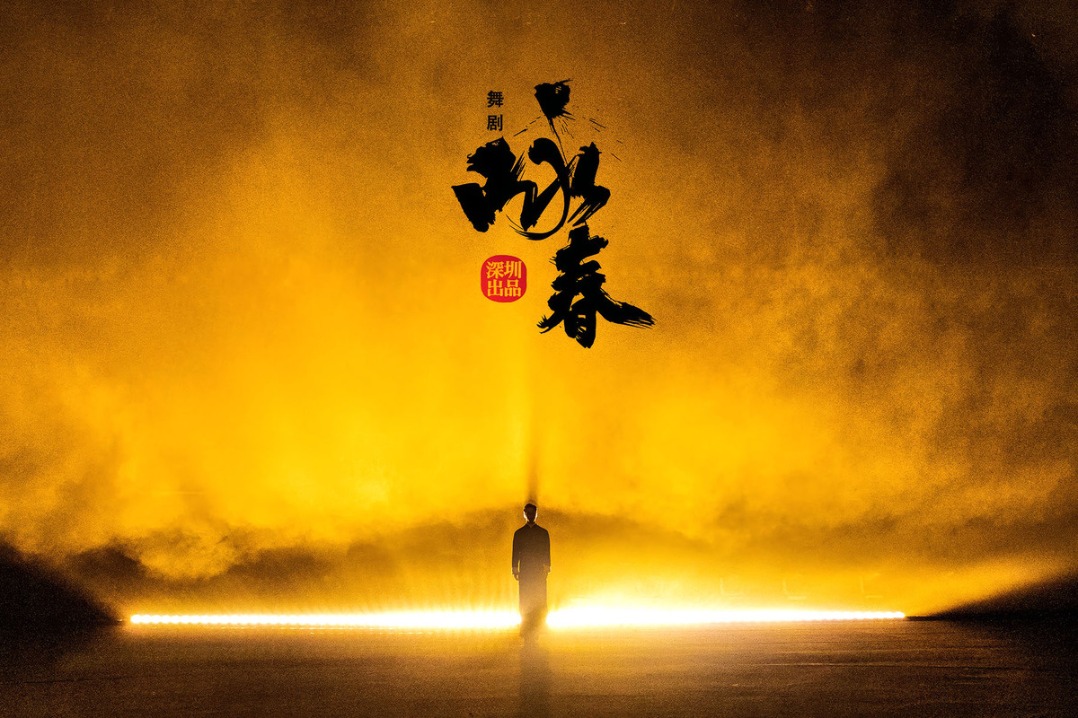Not for alliance but for history and peace


Almost all countries in the world, even islands inhabited by only penguins in the Pacific, are facing the United States' tariff war.
Against this backdrop, China's participation in Russia's Victory Day parade, marking the 80th anniversary of the victory in the Soviet Union's Great Patriotic War, a normal diplomatic practice, is distorted by some Western observers as a sign of China and Russia forming an "anti-West alliance".
In reality, "non-alignment" remains a cornerstone of China's foreign policy. China does not believe in forming an alliance with any country. Instead, it is open to developing normal relations with all countries, because it believes that alliances, which by nature are exclusive and confrontational, conflict with its advocacy for multilateralism and the democratization of international relations, and its vision for a community with a shared future for mankind.
China aims to develop normal ties with the US, the EU and all other peace-loving economies, and has established robust economic and diplomatic relations with almost all countries. Yet some experts, oblivious to historical trends, global dynamics and even their own interests, are being manipulated by the media and made to blindly oppose, even slander, China.
The celebrations to mark the Soviet Union's victory in World War II are a normal socio-political activity aimed at educating the younger generations about their forefathers' sufferings and fight against fascism. But some Western countries have made it a habit to deny or downplay the key roles the Soviet Union and China played in the victory in the World Anti-Fascist War.
Worse, certain political groups, in recent years, have been trying to defend Nazi Germany and fascist Japan's militarism and war crimes, in order to fan the flames of aggressive nationalism and xenophobia, while some Western observers tend to overlook the Allied powers' mutual support, and deny their key role in defeating the Axis powers. As the major victims of and major contributors to the victory in World War II, China and Russia have the responsibility to safeguard the truth and history.
If attending events like the Victory Day Parade means forming alliances, why did former US president George W. Bush and representatives from more than 50 countries attend the 60th anniversary of the victory in the "Great Patriotic War"? And why did former US president Barack Obama send a US military contingent to attend the 65th Victory Day in Moscow after his busy schedule prevented him from attending the event in person? There is no denying the fact that China, Russia and the US, and other countries, united as one to fight against fascism during World War II. Later, however, US and European leaders stopped participating in Russia's parades and even hindered World War II veteran exchanges between the US and Russia, and the EU and Russia, revealing the divisions between the US and its allies and raising unwarranted suspicion over China-Russia relations.
China and Russia also played crucial roles in post-war reconstruction. As UN founding members and permanent UN Security Council members, Russia and China are the pillars of the post-war international edifice and shoulder the mission of safeguarding global peace. By attending the parade in Moscow, Chinese leaders have been fulfilling China's commitment to commemorate the victory over fascist forces and thwart future global threats. Being a staunch defender of peace, China will host similar events to highlight history's lessons.
China and Russia issued a joint statement on Thursday on further deepening the comprehensive strategic partnership of coordination for a new era, agreeing to push forward the high-level development of bilateral ties, uphold a correct historical perspective on World War II and firmly defend international fairness and justice. China and Russia have been reiterating that their relationship, based on "no alliance, no confrontation, and no targeting of third countries", is one of strategic partnership based on equality, trust, and offers a new model for international relations, balances power among major countries and promotes multipolarism. Also, the Sino-Russian partnership shows countries can achieve common development and pursue mutual benefit without entering into or forming a military alliance.
The non-alliance partnership model between China and Russia not only reflects the diplomatic wisdom of both countries but also provides inspiration for third parties to engage in flexible diplomacy.
The Sino-Russian partnership will not harm any country unless that country intends to harm the two countries or poses a threat to their common interests. And "non-alignment" does not mean China will tolerate acts violating international law, or infringing upon its lawful rights and interests.
As Confucius said that a petty man is often troubled, while a gentleman is always at ease. Instead of speculating on Sino-Russian relations, the West would do better to reflect on the disastrous consequences of trade protectionism before World War II and the shared wisdom to deal with today's common global challenges. By learning from history, we can avoid repeating the mistakes that led to World War II and maintain lasting global peace.
The author is a researcher on Russian studies at the Chinese Academy of Social Sciences. The views don't necessarily reflect those of China Daily.
If you have a specific expertise, or would like to share your thought about our stories, then send us your writings at opinion@chinadaily.com.cn, and comment@chinadaily.com.cn.

















